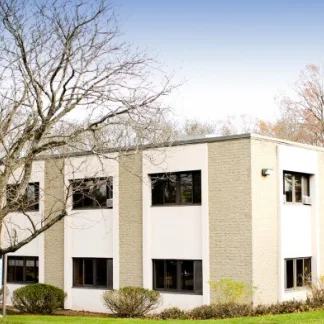The Mental Health Association of Westchester - Mount Kisco
The Mental Health Association of Westchester – Mount Kisco is a private rehab lo...
The Counseling Center offers state of the art Intensive Outpatient Therapy (IOP) for substance abuse treatment, in Westchester County, New York. The Counseling Center at Yorktown Heights is an outpatient addiction treatment center for adults and adolescents seeking treatment for addiction, alcoholism, and co-occurring disorders associated with addiction and substance use.
Contact us for more information: (914) 962-5101

Connect with The Counseling Center by calling their admissions team directly.
(914) 962-5101 Website Get DirectionsThe Joint Commission, formerly known as JCAHO, is a nonprofit organization that accredits rehab organizations and programs. Founded in 1951, the Joint Commision's mission is to improve the quality of patient care and demonstrating the quality of patient care.
Joint Commission Accreditation: Yes
Whether a marriage or other committed relationship, an intimate partnership is one of the most important aspects of a person's life. Drug and alcohol addiction affects both members of a couple in deep and meaningful ways, as does rehab and recovery. Couples therapy and other couples-focused treatment programs are significant parts of exploring triggers of addiction, as well as learning how to build healthy patterns to support ongoing sobriety.
Research has shown the individuals whose families are involved in treatment have a much better prognosis and a higher success rate. The Counseling Center at Fair Lawn will make a concerted effort to include family members in treatment whenever possible. The goal of the family education program is to provide family members with information and support that will assist clients in their recovery. A family education group will be held every week (typically Wednesday from 6:30 pm to 10:00 pm, but please check the schedule).
Group therapy is any therapeutic work that happens in a group (not one-on-one). At The Counseling Center, they seek to always run small group meetings of 10 people or less. They find that smaller groups are more comfortable for those participating and sharing, and allow for more careful review of important topics under discussion.
In individual therapy, a patient meets one-on-one with a trained psychologist or counselor. Therapy is a pivotal part of effective substance abuse treatment, as it often covers root causes of addiction, including challenges faced by the patient in their social, family, and work/school life.
Research has shown the individuals whose families are involved in treatment have a much better prognosis and a higher success rate. The Counseling Center at Fair Lawn will make a concerted effort to include family members in treatment whenever possible. The goal of the family education program is to provide family members with information and support that will assist clients in their recovery. A family education group will be held every week (typically Wednesday from 6:30 pm to 10:00 pm, but please check the schedule).
Group therapy is any therapeutic work that happens in a group (not one-on-one). At The Counseling Center, they seek to always run small group meetings of 10 people or less. They find that smaller groups are more comfortable for those participating and sharing, and allow for more careful review of important topics under discussion.
In individual therapy, a patient meets one-on-one with a trained psychologist or counselor. Therapy is a pivotal part of effective substance abuse treatment, as it often covers root causes of addiction, including challenges faced by the patient in their social, family, and work/school life.
Group therapy is any therapeutic work that happens in a group (not one-on-one). At The Counseling Center, they seek to always run small group meetings of 10 people or less. They find that smaller groups are more comfortable for those participating and sharing, and allow for more careful review of important topics under discussion.
In individual therapy, a patient meets one-on-one with a trained psychologist or counselor. Therapy is a pivotal part of effective substance abuse treatment, as it often covers root causes of addiction, including challenges faced by the patient in their social, family, and work/school life.
In individual therapy, a patient meets one-on-one with a trained psychologist or counselor. Therapy is a pivotal part of effective substance abuse treatment, as it often covers root causes of addiction, including challenges faced by the patient in their social, family, and work/school life.
The Mental Health Association of Westchester – Mount Kisco is a private rehab lo...
Lexington Center for Recovery is a drug and alcohol rehab and community resource...
Lexington Center for Recovery is a non-profit rehab located in Mount Kisco, New ...